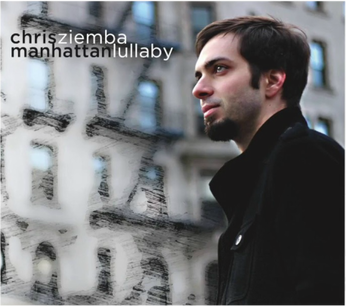
Ziemba himself composed all of the tracks with the lone exception of track 4’s I Wish I Knew by Harry Warren (1945). These compositions are beauties and the group make them come right off the CD at you.
The album opens with Josie. It is a piece that is rich in Manhattan atmosphere. One can imagine the setting as any one of 50 clubs where the patrons know exactly what they are hearing. It is a fun Bop that is full of energy and swing.
Chris Ziemba proves, right out of the gate, that he has the juice to carry this project under his own strength. But nothing like that is necessary as is proven by the solos offered by Glawischnig and Macbride in the very first track. This was a fun tune.
The Road Less Traveled gives us our first listen—on this album—to alto saxophonist Michael Thomas. There is great movement to the piece and the interaction between Ziembe and Thomas is extraordinary. Their solos set up the dialogue well. The rhythm section has the structure on lock-down but the inmates run amok within. Ziemba and Thomas are brilliant together.
The ending is a haunting fragment that is wonderful.
Manhattan Lullaby in a tone-perfect image of the streets and skyline. Thomas moves from alto sax to bass clarinet and creates a lush and lovely image of late night in New York. Ziemba’s piano sways against the Glawischnig bass work. Macbride is so secure and strong that it is easy to almost overlook what he is doing. Don’t make that mistake. Pay close attention to the man.
This is a wonderfully written and executed piece. A fitting title track.
Harry Warren’s I Wish I Knew is a stumbling-timed piece. Even the pacing speaks of insecurity and uncertainty. If I’m honest (And why not?), I like this arrangement even more than the original. Heretical? Maybe.
It is a showcase for Hans Glawischnig’s bass. He has the chops. They all do and they contribute to Ziemba’s vision in shouting acclamation. And Ziemba gives each artist the room to do it.
Escher’s Loop is an experience in unusual chords and quirky timing with fascinating turns and twists. Exactly like Escher, right? I dig the way Ziemba uses such a broad musical vocabulary to create the sonic parallel to Escher’s visuals. Following Ziemba is an exercise in music theory and, perhaps, even physics. It is, by no, means rambling; it is targeted but with a wild trajectory.
This is succeeded by Wandering. It is an Andante stroll with occasional skips and trips and joined by companions along the way. There even seems to be a hint from the choral line from the Beatles’ With a Little Help from My Friends. He breaks off the line before the end and that only enhances the feeling of wandering. Maybe that’s just my imagination. I could be wrong.
Wandering never loses its way but it does take side-streets and alleys along the way.
Little T is the jump-jive-and-wail piece on the album. Michael Thomas gets the early lead before Glawischnig solos. Ziemba then runs parallel to Glawischnig in a sprint. This was high-octane racing. Ziemba has a bright future if only based on this one track.
The album closes with An Introspective. As the title suggests, it is more reflective than it is self-critical. There is sweet and sad memory but no grief. Remembrance without remorse. That’s important. It asks “who am I?” more than “what have I done?” It is lovely in its sincerity and transparency. The memories swirl and question but do not accuse.
A beautiful and fitting close to a debut album.
Manhattan Lullaby is Chris Ziemba’s love letter to his adopted home. He shows us the streets, the parks, the people and, perhaps most of all, Ziemba shows us himself. The group solidly backs and interprets Ziemba’s vision and make plain his message of the place he calls home.
~Travis Rogers, Jr. is The Jazz Owl
 RSS Feed
RSS Feed
